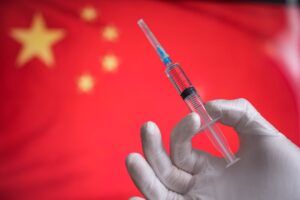The Surge of Oncology Licensing Deals in China’s Biopharmaceutical Sector
In an exciting development, the biopharmaceutical landscape in China has witnessed an unprecedented surge in oncology drug licensing deals in 2024. Notably, the total deal value reached a staggering $30 billion, primarily driven by monoclonal antibodies (mAbs) and antibody-drug conjugates (ADCs). Data from GlobalData’s Pharmaceutical Intelligence Center shows that mAbs and ADCs from Chinese biopharmaceutical companies accounted for an impressive 89% of all licensed molecule types, with a total deal value that was three times higher than similar deals emerging from the United States.
Pioneering Innovation
This rapid growth reflects the increasing innovative capabilities of Chinese pharmaceutical manufacturers, which are being bolstered by supportive government policies that prioritize innovation. Recent reforms in clinical development processes and regulatory reviews have dramatically accelerated drug approvals. As a result, China is not just a participation player but a burgeoning source of novel therapies, earning its place as an essential partner in the global arena of innovative drug development.
Navigating Trade Relations
However, the geopolitical climate remains complex. Recent developments in US-China trade relations have substantial implications for the global economy and, consequently, for the biopharmaceutical licensing landscape. On May 12, 2025, a groundbreaking agreement was reached that aimed to significantly reduce tariffs—lowering President Trump’s tariffs on Chinese goods from 145% to 30%, while also seeing a decrease in China’s reciprocal tariffs from 125% to 10% on US imports for an initial 90-day period. This easing of tensions provides a temporary relief, but companies are advised to remain vigilant about forthcoming negotiations amidst ongoing uncertainties.
Elevated tariffs and persistent supply chain disruptions could dampen economic growth and affect cross-border licensing deals. In this context, Chinese companies may strategically pivot to other markets outside the US, seeking more stable and commercially viable opportunities.
A Closer Look at Licensing Trends
In 2024, ADCs were at the forefront of oncology licensing activity, accounting for 56% of the total deal value with $19 billion. Meanwhile, mAbs represented 33% ($11 billion) and small molecules made up 9% ($4 billion). Remarkably, over 52% of these ADC deals involved bispecific ADCs, indicative of an increasing focus on more complex biologics and a heightened interest in China’s next-generation innovative assets.
The shift in dynamics is stark: the total deal value for oncology drugs licensed from Chinese biopharmaceutical companies soared by 24% from 2023 to 2024, reaching $33 billion. In contrast, deals from US firms experienced a 24% decline, totaling $35 billion. This change underscores the growing emphasis on innovation in China and the rising confidence among global partners in the robustness of Chinese biopharmaceutical assets. Notably, non-Chinese firms engaged in 27 licensing deals for oncology drug assets from Chinese companies in 2024, collectively worth $28 billion—with 68% of these deals ($18.7 billion) going to US companies. This marks an extraordinary 269% increase in deal value from the previous year, showcasing the growing appetite for Chinese innovations.
The Path Forward
Despite the thriving environment for Chinese innovation, the backdrop of US-China trade tensions introduces significant risk. While the recent tariff reductions offer a temporary respite, companies remain vulnerable to the complexities of shifting trade policies and potential retaliatory measures.
To stay ahead of the curve, stakeholders should monitor these developments closely, as the evolving geopolitical landscape may disrupt existing agreements and deter further collaboration.
For deeper insights into emerging trends in the pharmaceutical sector, check out our exclusive reports on Venture Capital Investment Trends in Pharma – Q1 2025 and M&A Trends in Pharma – Q1 2025.
This exploration of the burgeoning oncology licensing deals in China not only highlights the nation’s growing prowess in biopharmaceutical innovation but also underscores the intricacies of operating within a shifting global landscape. Staying informed is key to navigating this complex terrain as the world of finance and biopharmaceuticals continues to evolve.

